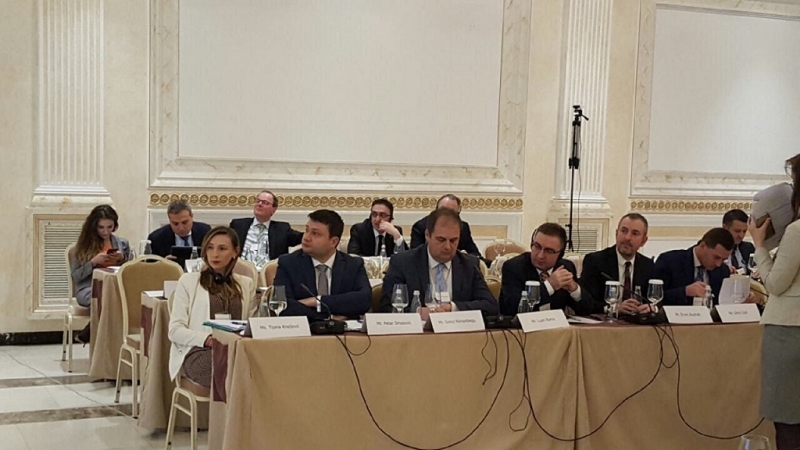Chairs of the interparliamentary conference were Chairperson of the Committee on Transport and Tourism of the European Parliament Ms Karima Delli and Vice President of the Kosovo Assembly Mr Xhavit Haliti. In the introductory part, the chairs of the conference addressed the participants and pointed out that development of trans-European networks and connectivity were key factors of European integration of the Western Balkans countries.
During the conference they discussed the previous results of the summits held within the Berlin Process and expectations on reaching the set goals for the countries of the Western Balkans Six (WB6) including Montenegro, until the holding of the next summit which was planned for July 2017 in Italy.
They also discussed the Connectivity Agenda which identified ten priority projects, out which six belonged to the field of transport and four to the field of energy. Among other things, they exchanged opinions on conditions and standards which the countries in the region must meet in order to obtain the funds for investment projects, which the EU allocated within the IPA II and the Western Balkans Investment Framework (WBIF). In that context, they pointed out the need for further efforts in implementation of the “soft measures” in transport and energy, at both the national and regional level, while the Secretariat of the South-East Europe Transport Observatory (SEETO) and the Secretariat of the Energy Community (EnC) provided support in their implementation and performed monitoring.
Members of the Montenegrin delegation pointed out that interparliamentary conference was essential, considering that it showed good will of the Western Balkans countries to mutually cooperate, as well as to promote the process of European integration of the countries in the region.
They said that, since the adoption of adequate legislation in the field of transport which was strict with respect to safety, Montenegro as a result had had a significant decrease in the number of traffic accidents. Bearing in mind that Montenegro has a small territory, further improvement in this field is needed. Due to that, they emphasised the significance of implementation of the corridor of the Adriatic-Ionian highway which was currently at the stage of drafting the feasibility study, and which would be used to connect Montenegro with the neighbouring countries in the region, and they pointed out the need for technical and financial support to this project.
The conference enabled the participants from the Western Balkans countries to discuss with the MEPs the role of parliaments in making strategic decisions in infrastructure and connectivity at the European level, as well as their funding and implementation.
In the concluding addresses, the MEPs pointed out the significance of the suitable legal framework based on legal rules, legal and judicial clarity, desire of the neighbouring countries to mutually cooperate at the regional level, as well as basic factors in attracting investments. They emphasised the essential role of the reform “soft measures” in connectivity. They pointed out the need for a new approach of the European Union in the enlargement policy aimed at providing support to the European integration.
The conference was organised by the European Parliament in cooperation with the Kosovo Assembly and the Regional Cooperation Council, within the European Parliament's support programme for the parliaments of the enlargement countries for 2017.












